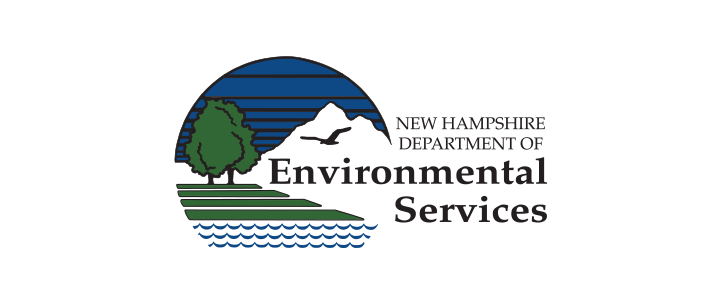
American Rescue Plan Act of 2021 (ARPA) Funds Drinking Water Projects
Using ARPA funds received from the US Treasury, the New Hampshire Governor and Executive Council and the Legislature’s Fiscal Committee have allocated $150 million to NHDES for drinking water, wastewater and storm water projects (additional funding may be allocated next year.) The funds have to be obligated by the end of 2024 and projects must be completed by the end of 2026. The majority of the funds allocated to NHDES must be used on projects that meet the eligibility requirements of the Clean Water or Drinking Water State Revolving Loan Funds (SRFs). A small percentage of the funds can be used on projects that do not necessarily meet the eligibility requirements of those programs, such as addressing contamination in private drinking water supplies.
DWGB has developed a plan for investing these funds in public water systems. The Wastewater Engineering Bureau and Watershed Management Bureau at NHDES are establishing similar programs. Funding for the following existing drinking water financial assistance programs will be expanded and cost-sharing requirements by the water systems will be removed or reduced:
- Capital Investment Projects in Drinking Water and Wastewater Infrastructure Improvements (grant funds coupled with Drinking Water State Revolving Loan Funds)
- Asset Management
- Energy Audits
Additionally, NHDES expects to establish the following new grant programs:
- Implementation of Energy Audit Recommendations
- Implementation of Cybersecurity Measures
- Planning
- Disadvantaged System Assistance Grant Program
Drinking Water Infrastructure Projects
ARPA funding for drinking water infrastructure projects will be made available as grants and will be combined with SRF loans for projects that have been awarded funding in the 2021 SRF project priority list (PPL). The amount of ARPA grant that will be combined with the SRF loan is dependent on the affordability index for the water system, which considers the cost of water for customers relative to the median household income for customers of the water system. The maximum ARPA grant amount available for a DWSRF project is 50% of the total project cost. ARPA grants are anticipated to be available again for the 2022 DWSRF PPL.
A portion of the ARPA money will be used to develop and implement a disadvantaged grant program for some of the neediest water systems in the state, manufactured-home cooperatives (COOPS). New Hampshire COOPS are non-profit corporations whose members, the homeowners, own and operate their common infrastructure. Due to the nature of manufactured home parks (MHPs) developed from the late 1950s to the late 1970s, most of these parks are facing water and sewer infrastructure that are at the end of their useful service life. Private investors often neglected to properly maintain or update water and wastewater systems, passing along the deteriorated infrastructure to the next buyer, in this case, to the COOP residents. The maximum grant amount that a COOP can receive for drinking water is $1 million. The COOP may also receive a grant for wastewater up to $1 million. If the COOP applies for funding for a combined drinking water and wastewater project, the maximum grant amount is $2 million. COOPS that meet the following disadvantaged criteria are eligible:
- A COOP that serves residents whose median household income (MHI) is less than the statewide MHI based on the most recent income survey (completed within the past three years). The statewide MHI for New Hampshire is $76,768 using the 2015 - 2019 American Community Survey data.
- At least 50% of the residential units must be occupied at least six months of the year by a population meeting the disadvantaged income criterion.
Eligible projects on the 2021 SRF PPL may receive grants under the disadvantaged COOP grant program. There will be an additional solicitation for projects to receive grants early next year.
A percentage of the ARPA funds allocated to drinking water and wastewater infrastructure will be designated to support grants for planning projects. Planning grants are critical to improve project development, increase project readiness, assist communities in applying for funding for implementation of the project, and ensure efficient use of funds. There was a solicitation for wastewater and stormwater projects and a solicitation for drinking water planning at the end of 2021; grant awards will occur early in 2022. Additional solicitations are anticipated.
Long-Term System Sustainability Programs
Funding for long-term system sustainability projects ensures the future viability of systems by modernizing technology and infrastructure. Funding programs that fit under this category include asset management, energy audits and energy audit implementation, water audits and cybersecurity upgrades. ARPA grant funds applied to long-term system sustainability programs will either support or enhance existing programs by reducing the cost share historically required or be used to implement new programs. The programs will incentivize water systems to complete audits of their systems (i.e., energy audit), which they can then use to apply for additional ARPA grant funds to implement the measures identified in audits. Development of an asset management program provides a community a way to identify and prioritize future projects to avoid the pitfalls of running a system to failure and to ensure that appropriate water rates are developed to adequately maintain the system.
Many water systems rely heavily on information technology to operate. USEPA and the Cybersecurity and Infrastructure Security Agency (CISA) offer free cybersecurity audits for water systems. ARPA grants will be available to implement the recommendations of these audits, which could include activities such as training employees or upgrading a water system information technology system. The cybersecurity grant program is expected to launch in spring 2022. For more information, visit the NHDES Infrastructure Funding website.




